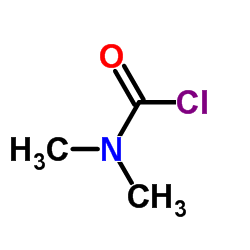Dosage limitations of the effects of difficult-to-detect carcinogens on in vitro interferon induction.
G Sonnenfeld, R W Hudgens, U N Streips
Index: J. Interferon Res. 4(1) , 129-33, (1984)
Full Text: HTML
Abstract
Several carcinogens have been shown to depress in vitro interferon (IFN) induction, while closely matched weakly or noncarcinogenic analogues had no effect on IFN induction. In this study, specific carcinogens that were difficult to detect by the Ames Salmonella assay were tested for their effects of IFN-alpha/beta induction. The carcinogens were applied to mouse embryo fibroblast cultures, and were then removed. IFN-alpha/beta induction was then carried out using polyriboinosinic-polyribocytidylic acid. Application of urethane, which was undetectable by the Salmonella assay except under special conditions, significantly depressed IFN-alpha/beta induction. Treatment with cyclophosphamide or dimethylcarbomyl chloride, both of which required extremely large dosages to be detected by the Salmonella assay, had no effect on IFN-alpha/beta induction at the dosages used. Higher dosages of these carcinogens were toxic to the cells used in this system.
Related Compounds
| Structure | Name/CAS No. | Molecular Formula | Articles |
|---|---|---|---|
 |
dmcl
CAS:79-44-7 |
C3H6ClNO |
|
Phenyldichlorophosphate as an aid in studies of decarbamylat...
1988-05-01 [Anal. Biochem. 170(2) , 451-5, (1988)] |
|
Dimethylcarbamoyl chloride.
2011-01-01 [Rep. Carcinog. 12 , 171-2, (2011)] |
|
Dimethylcarbamoyl chloride.
2004-01-01 [Rep. Carcinog. 11 , III107, (2004)] |
|
Dimethylcarbamoyl chloride.
2002-01-01 [Rep. Carcinog. 10 , 106-7, (2002)] |
|
Dimethylcarbamoyl chloride.
1999-01-01 [IARC Monogr. Eval. Carcinog. Risks Hum. 71 Pt 2 , 531-43, (1999)] |